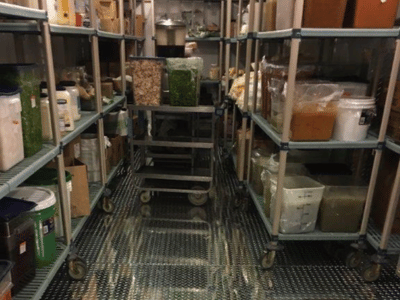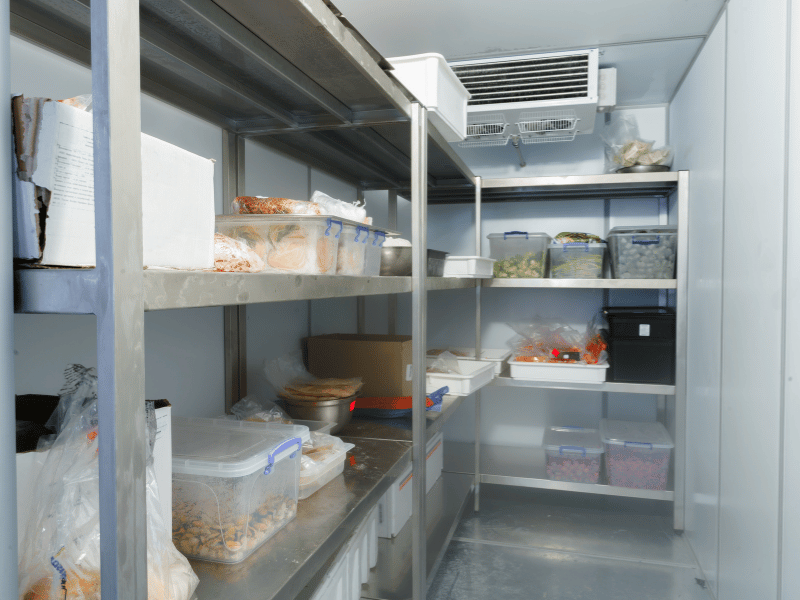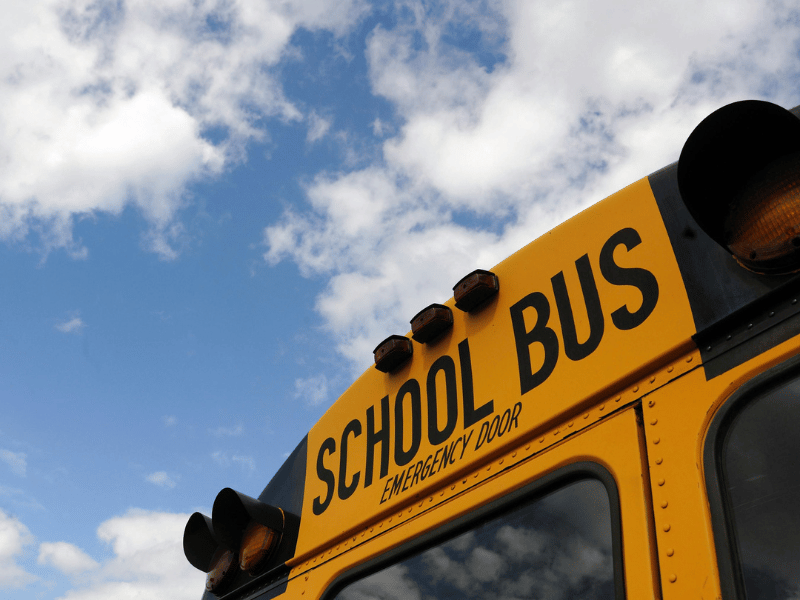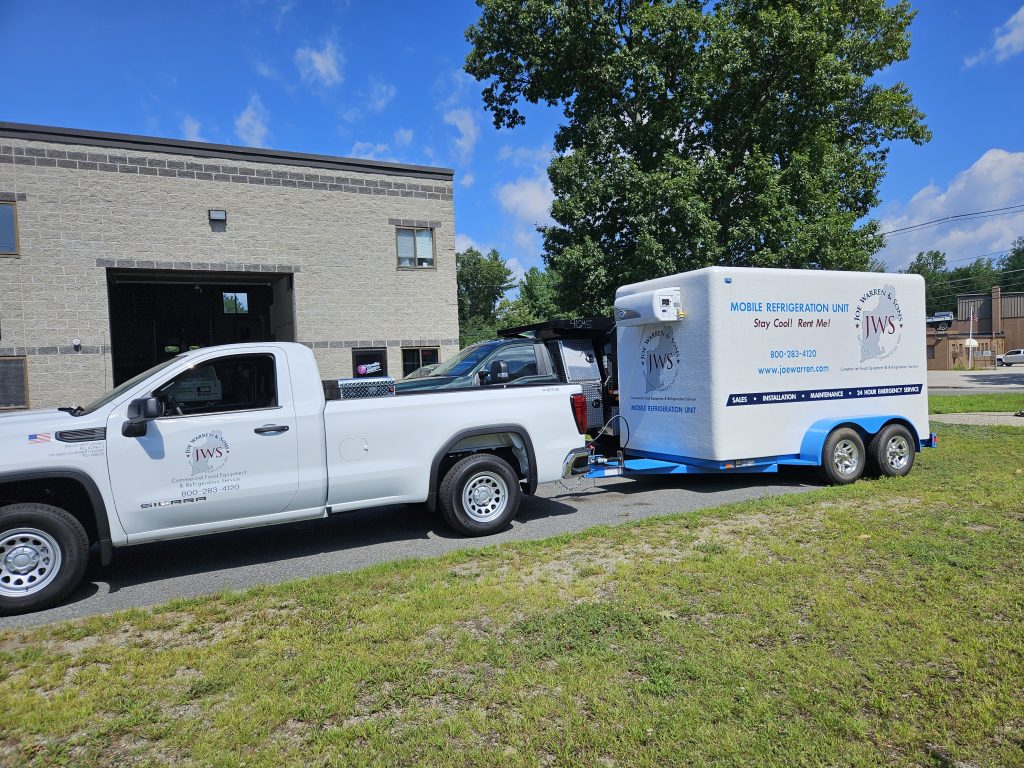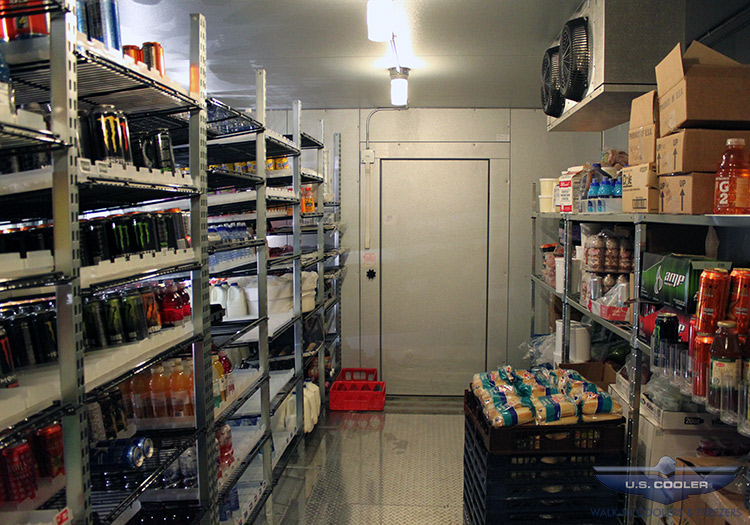As colder weather approaches, it’s important to prepare your commercial refrigeration systems for the unique challenges winter can bring. Even though the external temperature drops, your refrigeration equipment still needs to work efficiently to keep your inventory safe and fresh. By performing some proactive maintenance, you can avoid costly breakdowns and ensure your system operates at peak performance throughout the season. Here are essential winter maintenance tips to help you get ready:
1. Inspect and Clean Condenser Coils
Even in winter, condenser coils can accumulate dirt, dust, and debris, which can lead to reduced efficiency or system overheating. Clean your condenser coils regularly to ensure proper heat exchange and optimal performance. This also prevents the system from overworking, which can result in higher energy bills and potential failures.
2. Check Door Seals and Gaskets
Damaged or worn-out door seals can allow cold air to escape, forcing your refrigeration unit to work harder to maintain the proper temperature. Inspect the door gaskets for any cracks, gaps, or signs of wear, and replace them if needed. Well-sealed doors will not only improve efficiency but also keep your food fresher for longer.
3. Monitor Temperature Settings
With colder outdoor temperatures, it may be tempting to lower your refrigeration system’s settings. However, keeping the temperature steady and at the manufacturer’s recommended range is crucial for food safety. Use an external thermometer to regularly check the internal temperature to ensure that your refrigeration system is maintaining the ideal environment.
4. Inspect Refrigerant Levels
Low refrigerant levels can compromise the cooling power of your refrigeration system. Have a certified technician check the refrigerant levels and ensure there are no leaks. Proper refrigerant levels will keep your system running efficiently, especially during the winter months when fluctuations in temperature can add strain to the unit.
5. Schedule Professional Maintenance
Planned maintenance is key to extending the life of your refrigeration equipment. Scheduling a professional inspection before the colder months ensures any potential issues are identified early, and the system is in top shape to handle winter conditions. A trained technician can inspect all components, from fans to compressors, and make necessary adjustments to prevent breakdowns.
6. Ensure Proper Ventilation
Although it’s colder outside, proper ventilation is still crucial for refrigeration systems. Ensure that air is circulating freely around the unit, especially if it’s located indoors. Blocked vents can cause the compressor to overheat and strain the system, leading to expensive repairs. Make sure to keep storage and other items away from air intakes and vents.
7. Clean Drain Lines
Drain lines can become clogged with debris, mold, or ice during colder months. A clogged drain can lead to excess moisture and ice buildup, which affects your refrigeration system’s efficiency. Clean the drain lines regularly to prevent blockages and maintain smooth operation throughout the winter season.
8. Prepare for Power Fluctuations
Winter storms can lead to power outages or fluctuations. Ensure your refrigeration units are connected to surge protectors to avoid damage from sudden power changes. Having a backup power plan in place, such as a generator, is essential to keep your refrigeration units running in case of outages.
Final Thoughts
Winter weather can bring unexpected challenges, but with the right maintenance, your commercial refrigeration system will continue to operate efficiently. By addressing potential issues now and performing regular inspections, you can extend the life of your equipment, save on energy costs, and avoid expensive repairs down the line. Don’t wait for a breakdown to happen—take a proactive approach to your winter refrigeration maintenance.
For expert assistance or a customized maintenance plan, contact Joe Warren & Sons today. Our team of certified technicians is ready to ensure your refrigeration systems are prepared for the cold months ahead.

